Thursday Jul 17, 2025
Ben Habib: Advance UK: Fighting for Britain's Cultural and Political Revival
Hearts of Oak Podcast
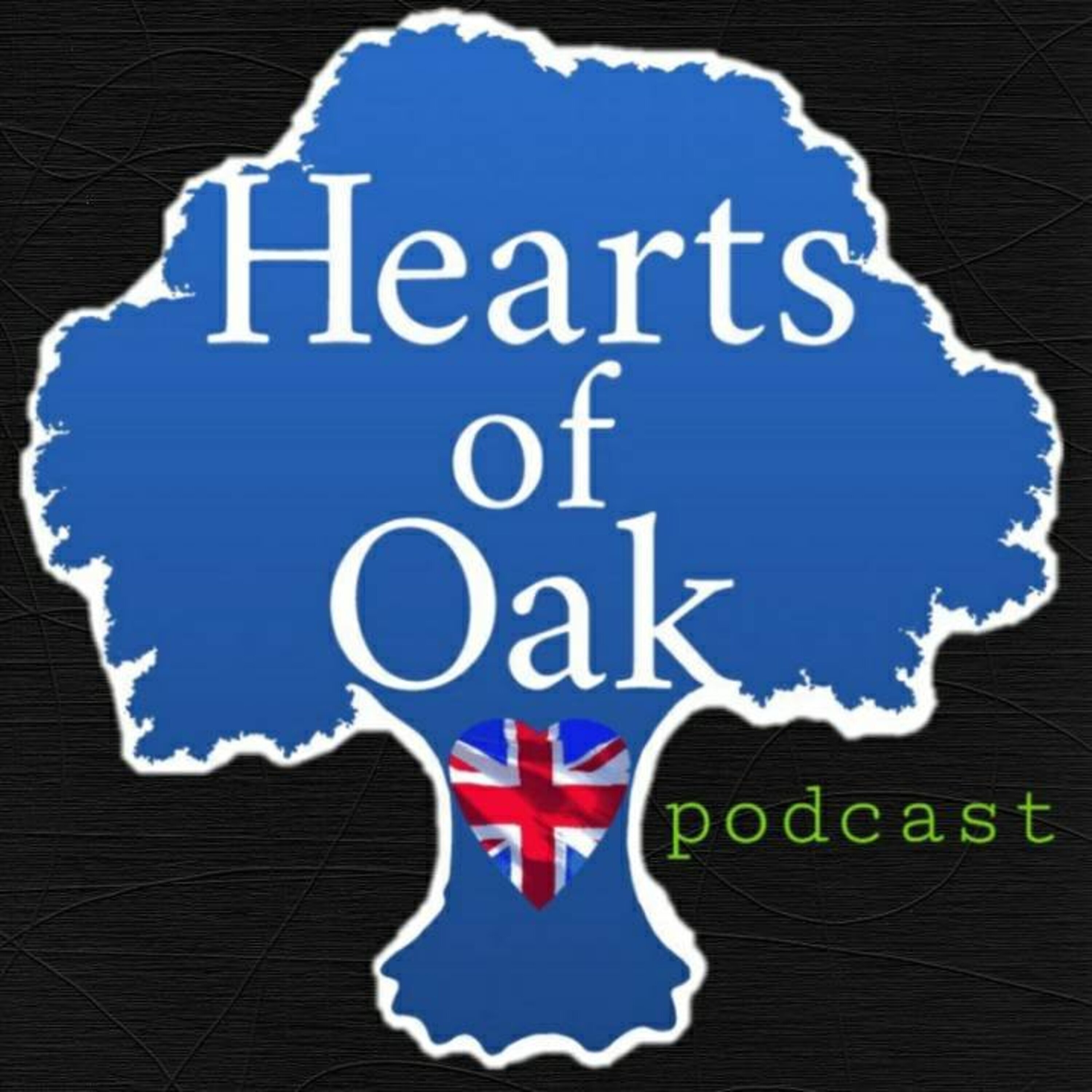
GUEST INTERVIEWS - Every Monday and Thursday - WEEKLY NEWS REVIEW - Every Weekend - Hearts of Oak is a Free Speech Alliance that bridges the transatlantic and cultural gap between the UK and the USA. Despite the this gap, values such as common sense, conviction and courage can transcend borders. For all our social media , video , livestream platforms and more https://heartsofoak.org/connect/
GUEST INTERVIEWS - Every Monday and Thursday - WEEKLY NEWS REVIEW - Every Weekend - Hearts of Oak is a Free Speech Alliance that bridges the transatlantic and cultural gap between the UK and the USA. Despite the this gap, values such as common sense, conviction and courage can transcend borders. For all our social media , video , livestream platforms and more https://heartsofoak.org/connect/
Episodes
Episodes



Monday Jul 14, 2025
Monday Jul 14, 2025
Chloe Cole discusses her journey as a young trans woman in an interview with Hearts of Oak, detailing her experiences with gender identity and medical transition beginning at age 13. She reflects on the emotional and physical repercussions of her choices, criticizing societal pressures and the coercive tactics used by medical professionals regarding early interventions for gender dysphoria. Chloe highlights her family dynamics during her transition and emphasizes the long-term health consequences she faces. Transitioning into activism, she advocates for awareness and legislative protections for vulnerable youth while also sharing how her faith journey has played a pivotal role in her healing process. The interview provides a nuanced perspective on identity, medical ethics, and the impacts of transitioning on young lives.
Connect with Hearts of Oak...𝕏 x.com/HeartsofOakUKWEBSITE heartsofoak.org/PODCASTS heartsofoak.podbean.com/SOCIAL MEDIA heartsofoak.org/connect/SHOP heartsofoak.org/shop/
*Special thanks to Bosch Fawstin for recording our intro/outro on this podcast.
Check out his art theboschfawstinstore.blogspot.com and follow him on 𝕏 x.com/TheBoschFawstin
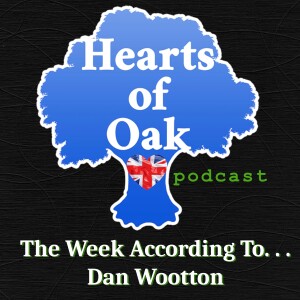


Saturday Jul 12, 2025
The Week According To. . . Dan Wootton
Saturday Jul 12, 2025
Saturday Jul 12, 2025
In this episode, I chat with Dan Wootton about key events from the past week, focusing on the anniversary of the 7/7 terror attacks and the shortcomings of mainstream media in addressing underlying ideologies. We explore the overlooked issue of child grooming in London and the political silence around it. Dan critiques the failures of media to hold powerful interests accountable and discusses the shifting dynamics within Reform UK. We conclude with a critical analysis of the UK-France immigration policy, emphasizing the need for more effective measures. This conversation highlights the urgent need for honesty in media and public discourse.
Connect with Dan…
Dan Wootton Outspoken
𝕏 https://x.com/danwootton
SUBSTACK: https://www.danwoottonoutspoken.com/
YouTube https://www.youtube.com/@danwoottonoutspoken
Connect with Hearts of Oak...
𝕏 x.com/HeartsofOakUK
WEBSITE https://heartsofoak.org
PODCASTS https://heartsofoak.podbean.com
SOCIAL MEDIA https://heartsofoak.org/connect
SHOP heartsofoak.org/shop
DONATE https://www.givesendgo.com/heartsofoak
https://donorbox.org/hearts-of-oak-fundraising
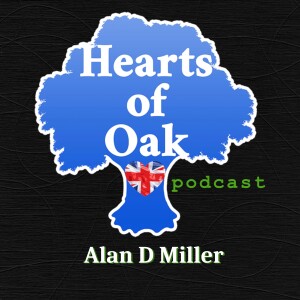


Friday Jul 11, 2025
Friday Jul 11, 2025
The interview with Alan Miller, founder of Together Declaration, addresses the urgent need for advocacy around civil liberties and free speech in the UK. Miller critiques the rise of technocracy and authoritarianism, highlighting the erosion of democratic principles due to government overreach, particularly during the pandemic. He discusses issues of censorship, citing alarming trends in social media-related arrests and the lack of parliamentary representation. Miller raises concerns over new legislative measures for digital IDs and surveillance technologies, warning they threaten personal freedoms. He calls for renewed civic engagement, urging citizens to participate actively in governance to reclaim and protect their rights against increasing governmental control.
Follow on Twitter atAlan D Miller: @alanvibe Together Declaration: @togetherdec Night time Industries Association: @wearethentiaAnd you can read Alan's regular blog at alandmiller.blogspot.co.ukTOGETHER DECLARATIONOrganisations, business groups, campaigners and professionals: Read and sign here https://togetherdeclaration.org/ OPEN FOR ALL CHARTERFor all licensed premises and events:Read and sign the charter here https://www.openforall.co.uk/
Connect with Hearts of Oak...𝕏 x.com/HeartsofOakUKWEBSITE heartsofoak.org/PODCASTS heartsofoak.podbean.com/SOCIAL MEDIA heartsofoak.org/connect/SHOP heartsofoak.org/shop/
*Special thanks to Bosch Fawstin for recording our intro/outro on this podcast.
Check out his art theboschfawstinstore.blogspot.com and follow him on 𝕏 x.com/TheBoschFawstin



Monday Jul 07, 2025
John Waters - The Abolition of Reality: A First Draft of the End of History
Monday Jul 07, 2025
Monday Jul 07, 2025
John Waters discusses his book "The Abolition of Reality: A First Draft of the End of History," exploring the cultural and societal upheavals caused by the COVID-19 pandemic. He critiques the roles of media, economics, and authority in fostering a climate of fear and control, linking contemporary economic practices to the abolition of the gold standard in 1971. Waters argues that the pandemic served as an orchestrated project undermining human rights, facilitated by a compliant media that prioritized sensationalism over truth. He highlights groupthink's impact on societal panic and the expansion of state control, likening the political response to a predatory instinct to seize power. Waters warns against the normalization of extreme measures and advocates for future awareness and resistance to overreach, emphasizing the importance of documenting these events to prevent history from repeating itself.
Connect with John...SUBSTACK johnwaters.substack.com/WEBSITE: anti-corruptionireland.com/
Connect with Hearts of Oak...𝕏 x.com/HeartsofOakUKWEBSITE heartsofoak.org/PODCASTS heartsofoak.podbean.com/SOCIAL MEDIA heartsofoak.org/connect/SHOP heartsofoak.org/shop/
*Special thanks to Bosch Fawstin for recording our intro/outro on this podcast.
Check out his art theboschfawstinstore.blogspot.com and follow him on 𝕏 x.com/TheBoschFawstin
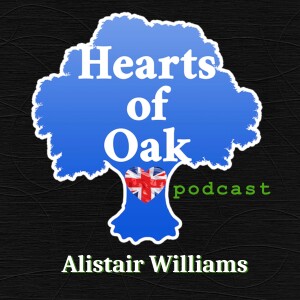


Thursday Jul 03, 2025
Alistair Williams - Stand-Up Rebellion: Finding Humour in a Controlled World
Thursday Jul 03, 2025
Thursday Jul 03, 2025
In this episode, I chat with comedian Alistair Williams about his upcoming tour with Tanya Edwards. We discuss the challenges independent comedians face in securing venues and the collaborative nature of the comedy community. Alistair shares insights on the freedom of touring versus performing at established clubs, highlights a humorous critique of London's ULEZ system, and reflects on the impact of social media restrictions on visibility. He emphasizes the role of faith in his comedy and invites listeners to join him on tour for genuine laughter and connection.
Connect with Alistair...Linktree Alistairww | Linktree
Connect with Hearts of Oak...𝕏 x.com/HeartsofOakUKWEBSITE heartsofoak.org/PODCASTS heartsofoak.podbean.com/SOCIAL MEDIA heartsofoak.org/connect/SHOP heartsofoak.org/shop/
*Special thanks to Bosch Fawstin for recording our intro/outro on this podcast.
Check out his art theboschfawstinstore.blogspot.com and follow him on 𝕏 x.com/TheBoschFawstin
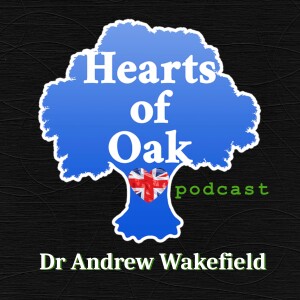


Thursday Jun 26, 2025
Thursday Jun 26, 2025
Dr. Andrew Wakefield discusses his vaccine safety advocacy and the impact of his film "Protocol 7" on public awareness. He highlights Robert F. Kennedy Jr.'s appointment to major health agencies as a crucial development and calls for reforms to remove conflicts of interest. Wakefield critiques pharmaceutical advertising's influence on media integrity and addresses rising parental distrust due to mandatory vaccines and increasing autism diagnoses. He previews a new project aimed at supporting families with autism and emphasizes the need for transparency in vaccine discussions, while expressing hope for future reform in the vaccine safety narrative.
PROTOCOL 7 - An Andy Wakefield Film WEBSITE protocol7.movie X/TWITTER x.com/P7MovieINSTAGRAM instagram.com/protocol7movie
Andy Wakefield has been likened to the Dreyfus of his generation -- a doctor falsely accused of scientific and medical misconduct, whose discoveries opened up entirely new perceptions of childhood autism, the gut-brain link, and vaccine safety. As an ‘insider,' the price for his discoveries and his refusal to walk away from the issues they raised, was swift and brutal, with loss of job, career, reputation, honours, colleagues, and country. And yet he enjoys a huge and growing support from around the world.Wakefield’s stance made him a trusted place for whistle-blowers -- from government and industry to confess and ‘download.' He has extraordinary stories to share. Wakefield is now an award-winning filmmaker. Despite elaborate attempts at censorship, his documentary VAXXED: From Cover-Up to Catastrophe – the revelations of a vaccine scientist at the U.S. Centers for Disease Control and Prevention- changed the public mindset on the truth about vaccine safety. Wakefield’s is a story that starts with professional trust in the instincts of mothers, choice and consequences, a quest for truth, and perseverance against overwhelming odds.Andy has long pursued the scientific link between childhood vaccines, intestinal inflammation, & neurological injury in children. Dr. Wakefield is the co-founder of the Autism Media Channel & the founder of 7th Chakra Films.
He is the director of his first major narrative feature, the recently released #Protocol7, co-written with Terry Rossio (Aladdin, Shrek, Pirates of the Caribbean, Fast and Furious, Godzilla vs. King Kong).
Connect with Hearts of Oak...𝕏 x.com/HeartsofOakUKWEBSITE heartsofoak.org/PODCASTS heartsofoak.podbean.com/SOCIAL MEDIA heartsofoak.org/connect/SHOP heartsofoak.org/shop/
*Special thanks to Bosch Fawstin for recording our intro/outro on this podcast.
Check out his art theboschfawstinstore.blogspot.com and follow him on 𝕏 x.com/TheBoschFawstin
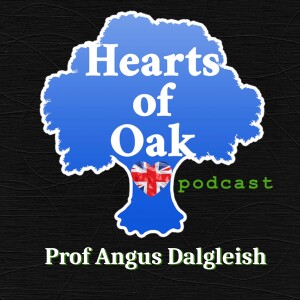


Monday Jun 23, 2025
Prof Angus Dalgleish - The Evolution of Cancer Treatment: A 40-Year Journey
Monday Jun 23, 2025
Monday Jun 23, 2025
Professor Angus Dalgleish shares insights from his 40-year career in oncology, focusing on innovative cancer treatment approaches and the role of immunotherapy. He reflects on his transition from traditional chemotherapy to employing the immune system in combatting cancer, drawing on his earlier HIV/AIDS research. Dalgleish emphasizes the significance of personalized treatment plans and the emotional aspects of delivering cancer diagnoses. He advocates for monitoring vitamin D levels in patients and integrating lifestyle factors, like diet and exercise, into cancer care. Critiquing the pharmaceutical industry's influence on cancer research, he highlights the neglect of affordable treatments and expresses concerns about mRNA vaccines and their potential links to "turbo cancers." His conversation underscores the need for a holistic, patient-centered approach in oncology, advocating for comprehensive strategies that prioritize patient wellbeing over commercial interests.
Connect with Hearts of Oak. . .𝕏 x.com/HeartsofOakUKWEBSITE heartsofoak.org/PODCASTS heartsofoak.podbean.com/SOCIAL MEDIA heartsofoak.org/connect/SHOP heartsofoak.org/shop/
*Special thanks to Bosch Fawstin for recording our intro/outro on this podcast.
Check out his art theboschfawstinstore.blogspot.com and follow him on 𝕏 x.com/TheBoschFawstin
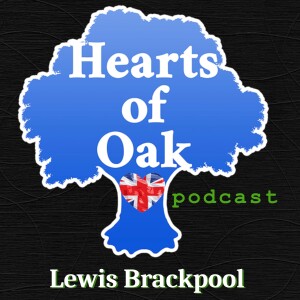


Thursday Jun 19, 2025
Lewis Brackpool - The Art of Digging for Government Secrets
Thursday Jun 19, 2025
Thursday Jun 19, 2025
In this episode of Hearts of Oak, Peter interviews Lewis Brackpool, an advocate for freedom of information (FOI) requests, discussing their crucial role in enhancing government transparency. Lewis explains the mechanics of FOIs, noting their accessibility to citizens and the essential role they play in promoting accountability. He shares his experiences with FOI requests, including difficulties faced when seeking information from institutions like the Bank of England and insights gained from investigating government influence on media narratives around critical issues. The conversation emphasizes the strategic nature of submitting FOIs, the persistence required to overcome resistance, and the importance of leveraging technology in the process.
Connect with Lewis...X/TWITTER x.com/Lewis_Brackpool PODCAST open.spotify.com/show/1ObKegtoG8OH5fIFP3hjUx?si=f3f470c139b84167SUBSTACK lewisbrackpool.substack.com/
Connect with Hearts of Oak...𝕏 x.com/HeartsofOakUKWEBSITE heartsofoak.org/PODCASTS heartsofoak.podbean.com/SOCIAL MEDIA heartsofoak.org/connect/SHOP heartsofoak.org/shop/
*Special thanks to Bosch Fawstin for recording our intro/outro on this podcast.
Check out his art theboschfawstinstore.blogspot.com and follow him on 𝕏 x.com/TheBoschFawstin

